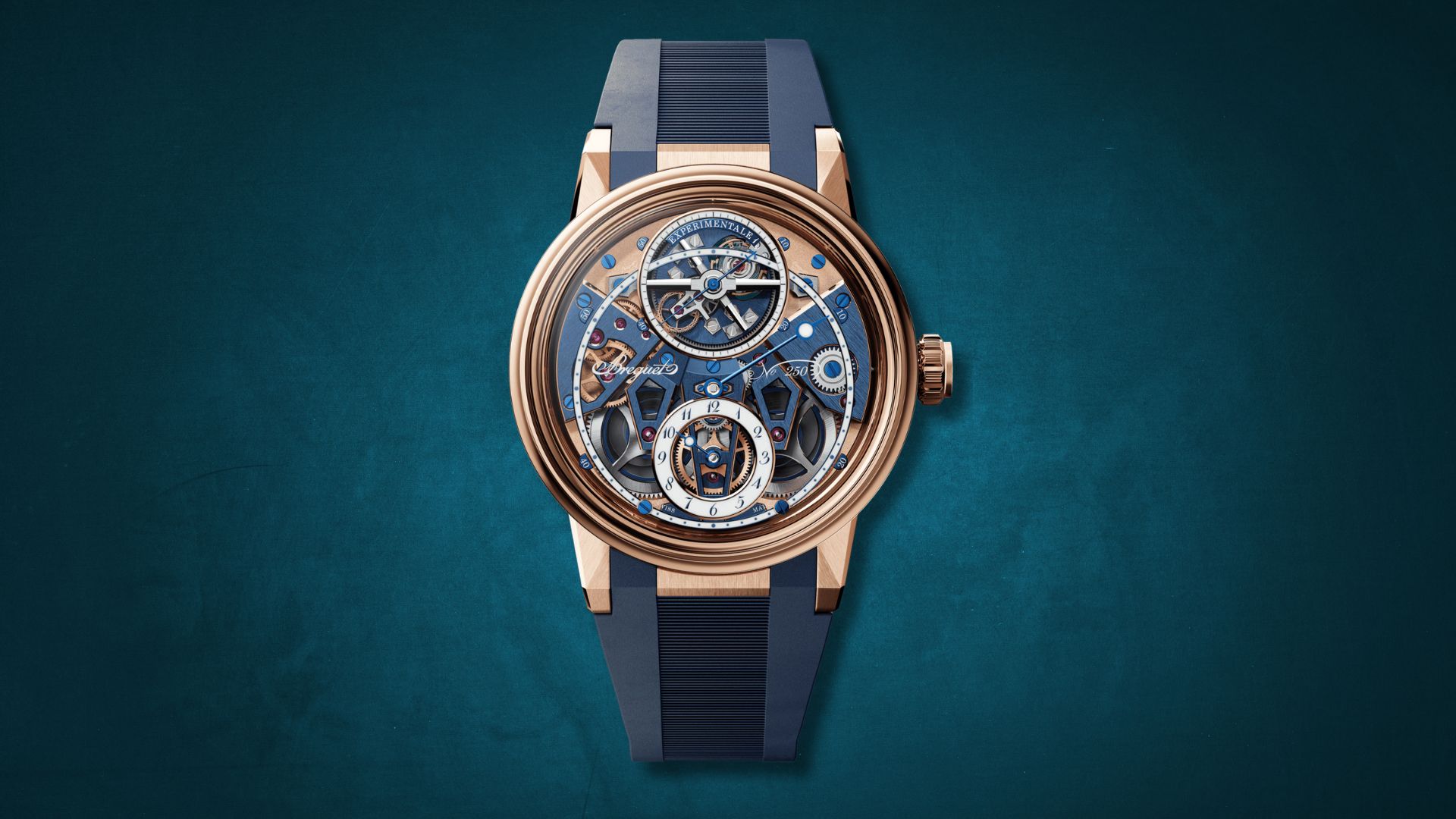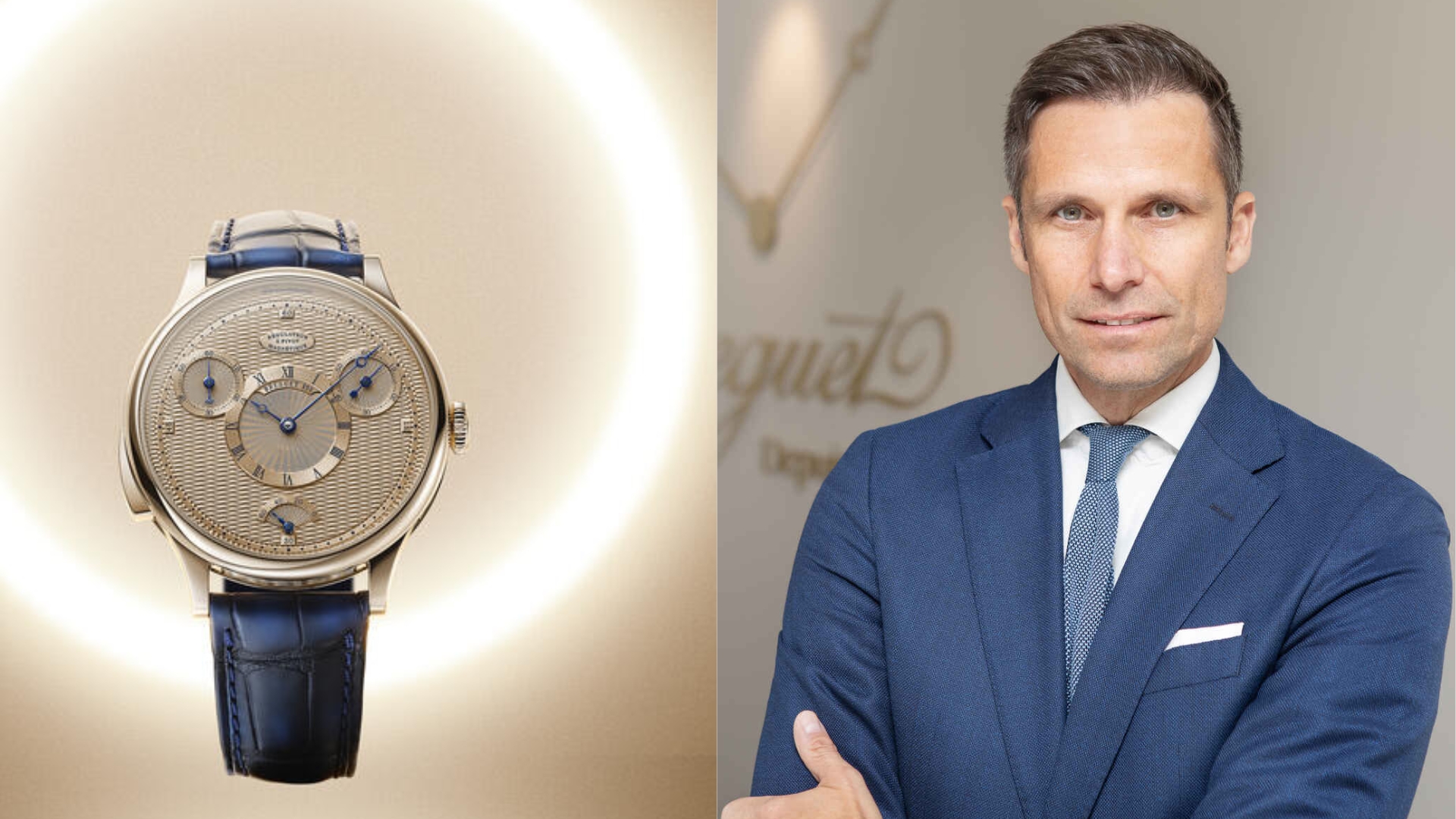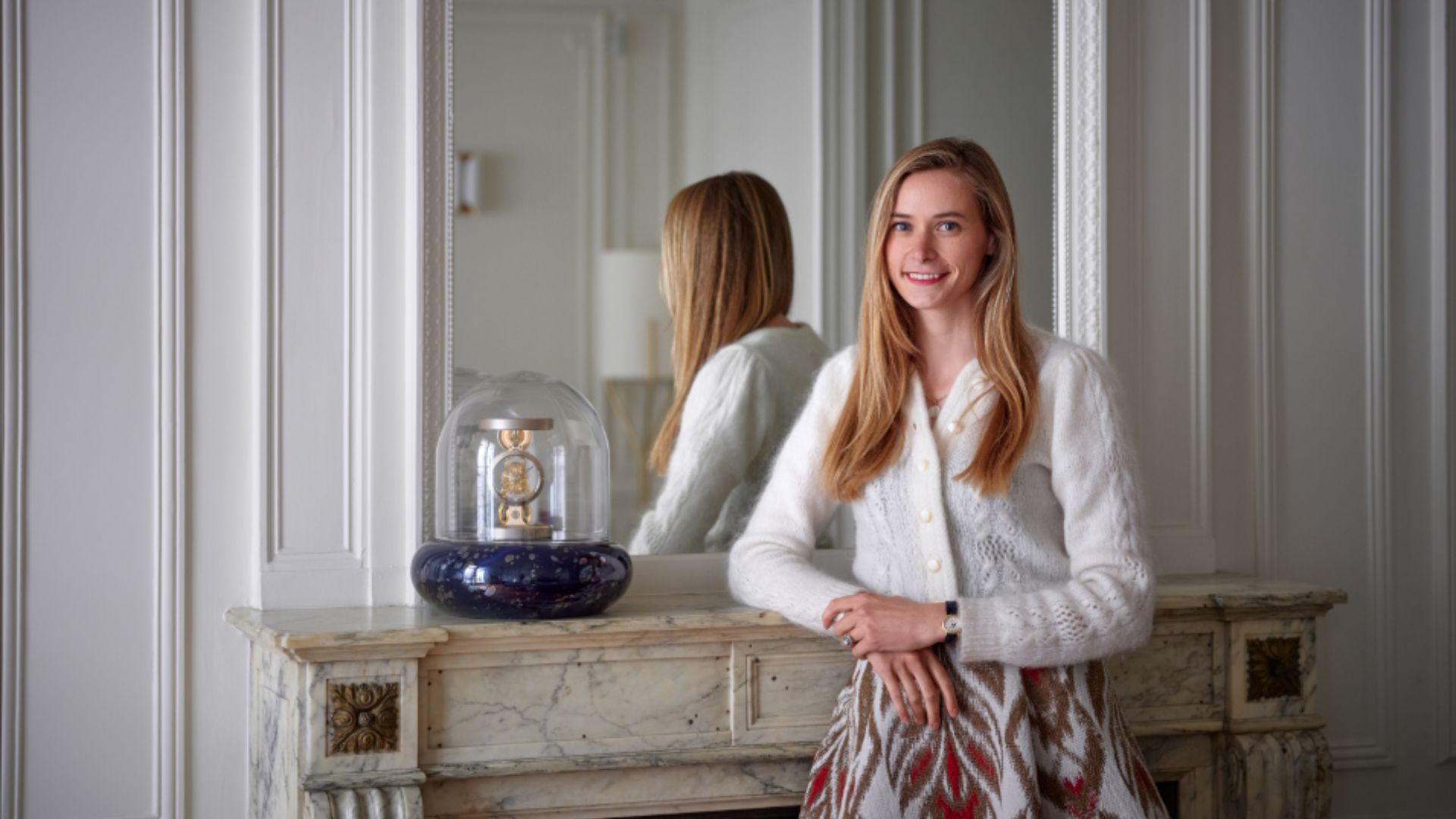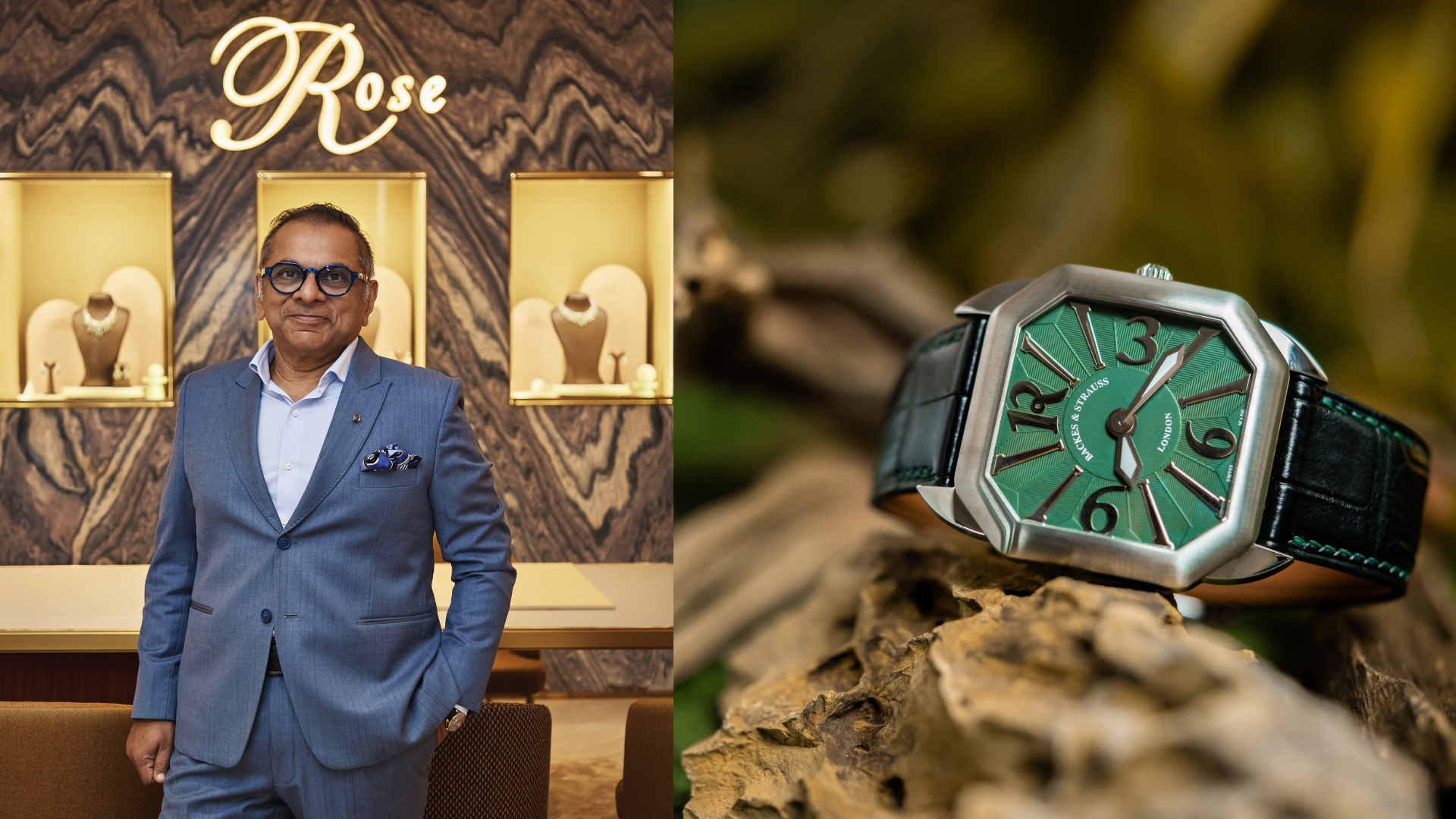Pre-owned Watches Are an Asset Class: Aurel Bacs


Aurel Bacs is often referred to as the living legend of the auction world. The senior consultant at Phillips Contemporary Auction House is feted across the world for some of the most notable auction moments in recent years – take, for example, his sale of Paul Newman’s Rolex Daytona, which made watch auction history in 2017. GMT India caught up with the celebrated watch expert on the sidelines of the GPHG exhibit in New Delhi. Excerpts from the interview:
GMT India: Indian collectors often see watches as an investment. What do you think of this concept?
Aurel Bacs (AB): I fully understand why amateur collectors see the investment part as an important one. In the past 40 years or so, the prices have considerably increased. Needless to say, when you read in the press about Phillips making a world record for Rolex or for F.P. Journe, it inspires people to say, “Wait a second, I can do the same. I take $100,000, and a year later, it can be a million dollars.”
I wish pleasure is the greatest benefit one can get from owning a watch. I think a watch, maybe like a work of art or a jewel, should be a very personal choice. When you select your fine, high-quality watch, the first question should be, “Is this watch going to make me happy? Or even, will the next generation appreciate it?” I have noticed that those collectors, who have made the biggest profits, have never asked the question, “Is it going to be profitable?” They first have a love affair with watches. And then, years later, these turn into very profitable investments.
GMT India: With technology taking over, why do you think the younger generation will want to invest in a watch, vintage or otherwise?
AB: If we sit at a table and we desire to drink something, we can have hot water or tea. It's all about taste. We want to reward ourselves and be different from everybody else. We need to have something that feeds us intellectually and emotionally. Of course, you have music, literature or art. You have conversations with friends. But a watch is a part of this equation. So I don't think the young generation needs to be taught much.
When you look at the younger generation today, they all sport very similar kinds of fashion - same sneakers, same trousers, etc. It's all very synchronised because of the influence from the media. So, I think it's particularly important for a young person to find a way to stand out from the crowd. In this regard, a watch offers nearly unlimited ways of expressing various facets of your personality.
GMT India: We’ve noticed that auction catalogues are now featuring not just vintage timepieces, but some contemporary ones, from independent brands as well. Is there a reason behind this shift?
AB: I think independent watchmakers have been able to take the best of two worlds, contemporary production and the vintage world. Unquestionably, the vintage world has a great degree of romance – things were made in a very old-fashioned way, before computers were used. Some of that old-world charm has been lost with contemporary production – things are now so perfect, so precise, similar to each other.
Great brands, whether it's Omega or Rolex, make a million or more watches. With independent watchmakers, you may have 50 or 100 watches that exude a particular kind of charm. There is an element of exclusivity as well - with all due respect, some contemporary watches are just not that exclusive anymore. Products from independent watchmakers are also very wearable, they're made for now, for 2022.
I think independent watchmakers can deliver unique, made-to-measure pieces. A company that makes half a million watches per year cannot be expected to make unique ones. They don't have the capacity to stop production and make a unique piece for you. Many people would love to have a unique Rolex, I don't think it's happening, unless you're a king or a ruler. So there's another element – personalisation, as offered by independent watch brands. So, independent brands, whether it's F.P. Journe or Richard Mille, are now setting world records at auctions and fetching millions of dollars.

GMT India: So, are independent watch brands ruling the auctions?
AB: Well, it's not the independents who rule the auction room, but they have definitely joined the elite.
GMT India: Has there been a change in the demographic participating in auctions?
AB: The demographic and age profile have changed. It used to be an elderly gentleman, at the end of his career, rewarding himself. Now, age seems no bar to enjoying watches. As far as participation is concerned, we've had around 70-80 nations taking part in our auctions at Phillips. This is a mind-boggling number! You can say it's a worldwide community now; it's a direct effect of globalisation and also a consequence of the easy flow of information. You don't have to be in Geneva to read about a rare, fine watch. You can be in India or anywhere in the world and read about it on your mobile device. This is a very dramatic development.
GMT India: Recently, we’ve noticed that brands have run out of stocks at their boutiques. So, has that led to massive mark-ups in the secondary market?
AB: Thankfully, now the watch market has finally understood that a pre-owned watch is not something to be ashamed of; a pre-owned watch is an asset class. It's a very liquid asset. Of course, it depends on the brand, the model and if it has been looked after or if it has the original box and papers. But, today, there is a very active community wherein you can trade among collectors. Whether you choose to go to an auction house or to a reputable dealer, it’s very good for the market as a whole. It has helped the market globally.
GMT India: What has been the most interesting watch you have dealt in?
AB: Recently, somebody did the maths. I think I've sold 60,000-70,000 watches as an auctioneer. And I cannot imagine how many I have seen or examined. Thankfully, I cannot name one as the most interesting. There are different disciplines with regard to what can impress me, be its rarity, its history, its condition, its complications or its finishing. There isn't one that stands out from all, which is also good because, well, what should I be looking for after all that? I'm still very hungry to make discoveries though.
GMT India: Out of curiosity, are there moments when you see something in a catalogue that you like and want to buy?
AB: There are clear rules. I put it on my shopping list. And, sometimes, it takes a year or five. So, the desire to own it goes away after a few weeks.
GMT India: Do you think it's a sort of occupational hazard?
AB: To some extent, between the time when the watch is being consigned to the auction and the moment when that auction takes place, normally three to five months, we get to study the watch. We're not wearing them, of course, but we still study them. We appreciate them. We have discussions with our colleagues. So, temporarily, they feel a little bit like ours.
GMT India: That’s wonderful. Can we see the watch you're wearing?
AB: I am wearing (Patek Philippe) Ellipse today. I do like the 1970s. It's a simple, uncluttered design.
(Interview transcribed by Aakriti Jadwani)
Image credits: Ishwar Prasad
















%20(4).jpg)
